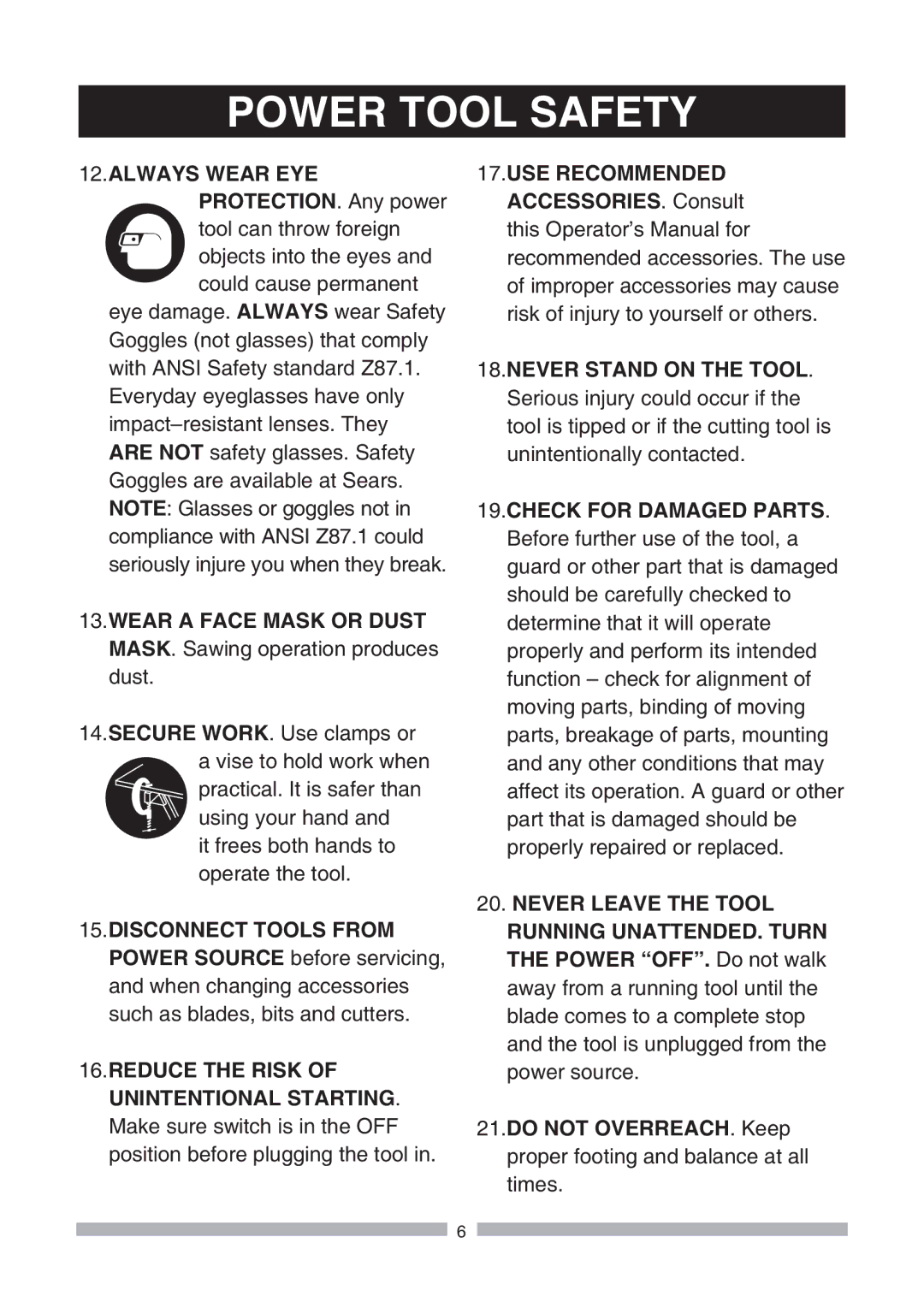
POWER TOOL SAFETY
12.ALWAYS WEAR EYE
PROTECTION. Any power tool can throw foreign objects into the eyes and could cause permanent
eye damage. ALWAYS wear Safety Goggles (not glasses) that comply with ANSI Safety standard Z87.1. Everyday eyeglasses have only
13.WEAR A FACE MASK OR DUST
MASK. Sawing operation produces dust.
14.SECURE WORK. Use clamps or a vise to hold work when
practical. It is safer than using your hand and
it frees both hands to operate the tool.
15.DISCONNECT TOOLS FROM
POWER SOURCE before servicing, and when changing accessories such as blades, bits and cutters.
16.REDUCE THE RISK OF
UNINTENTIONAL STARTING. Make sure switch is in the OFF position before plugging the tool in.
17.USE RECOMMENDED
ACCESSORIES. Consult this Operator’s Manual for recommended accessories. The use of improper accessories may cause risk of injury to yourself or others.
18.NEVER STAND ON THE TOOL.
Serious injury could occur if the tool is tipped or if the cutting tool is unintentionally contacted.
19.CHECK FOR DAMAGED PARTS.
Before further use of the tool, a guard or other part that is damaged should be carefully checked to determine that it will operate properly and perform its intended function – check for alignment of moving parts, binding of moving parts, breakage of parts, mounting and any other conditions that may affect its operation. A guard or other part that is damaged should be properly repaired or replaced.
20.NEVER LEAVE THE TOOL RUNNING UNATTENDED. TURN THE POWER “OFF”. Do not walk away from a running tool until the blade comes to a complete stop and the tool is unplugged from the power source.
21.DO NOT OVERREACH. Keep proper footing and balance at all times.
6
